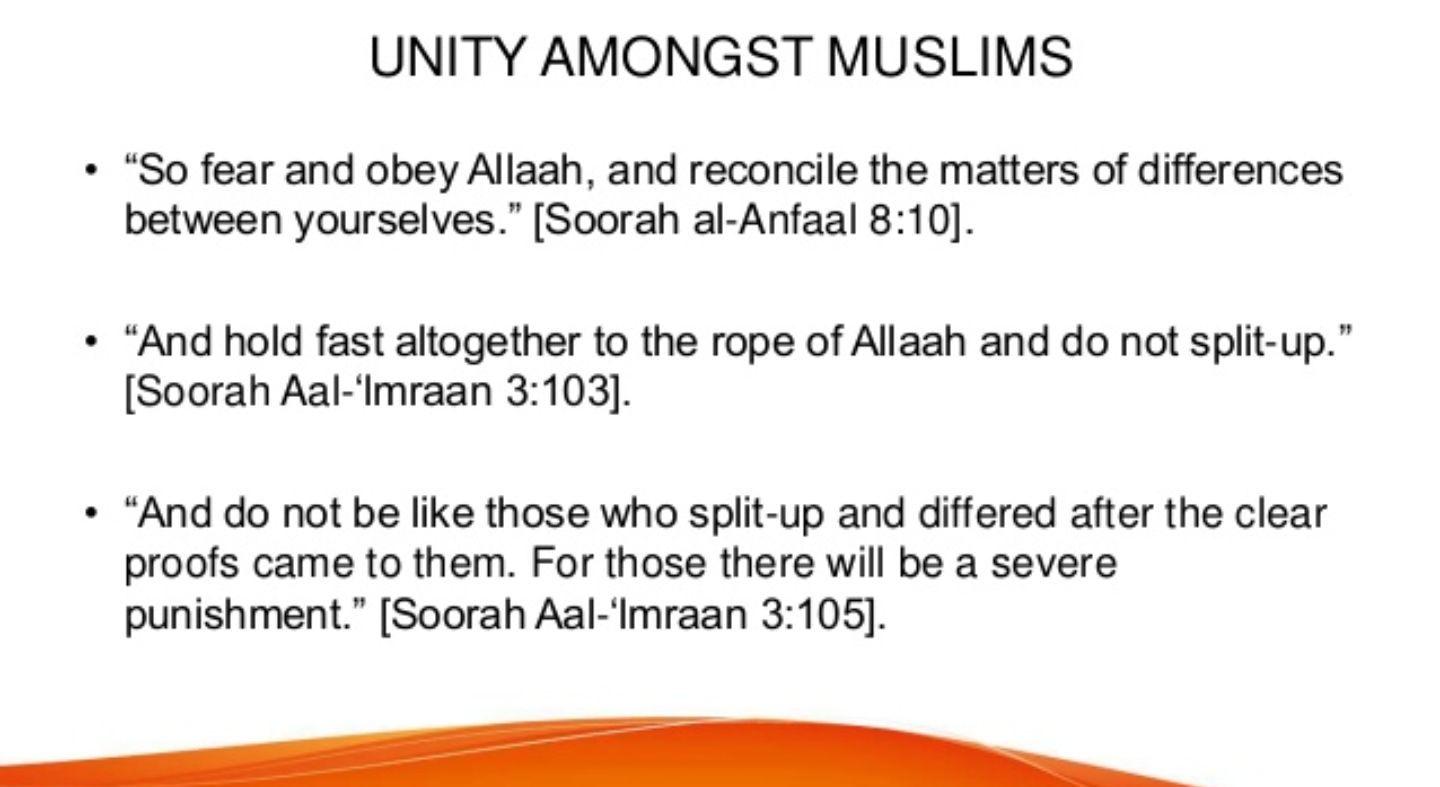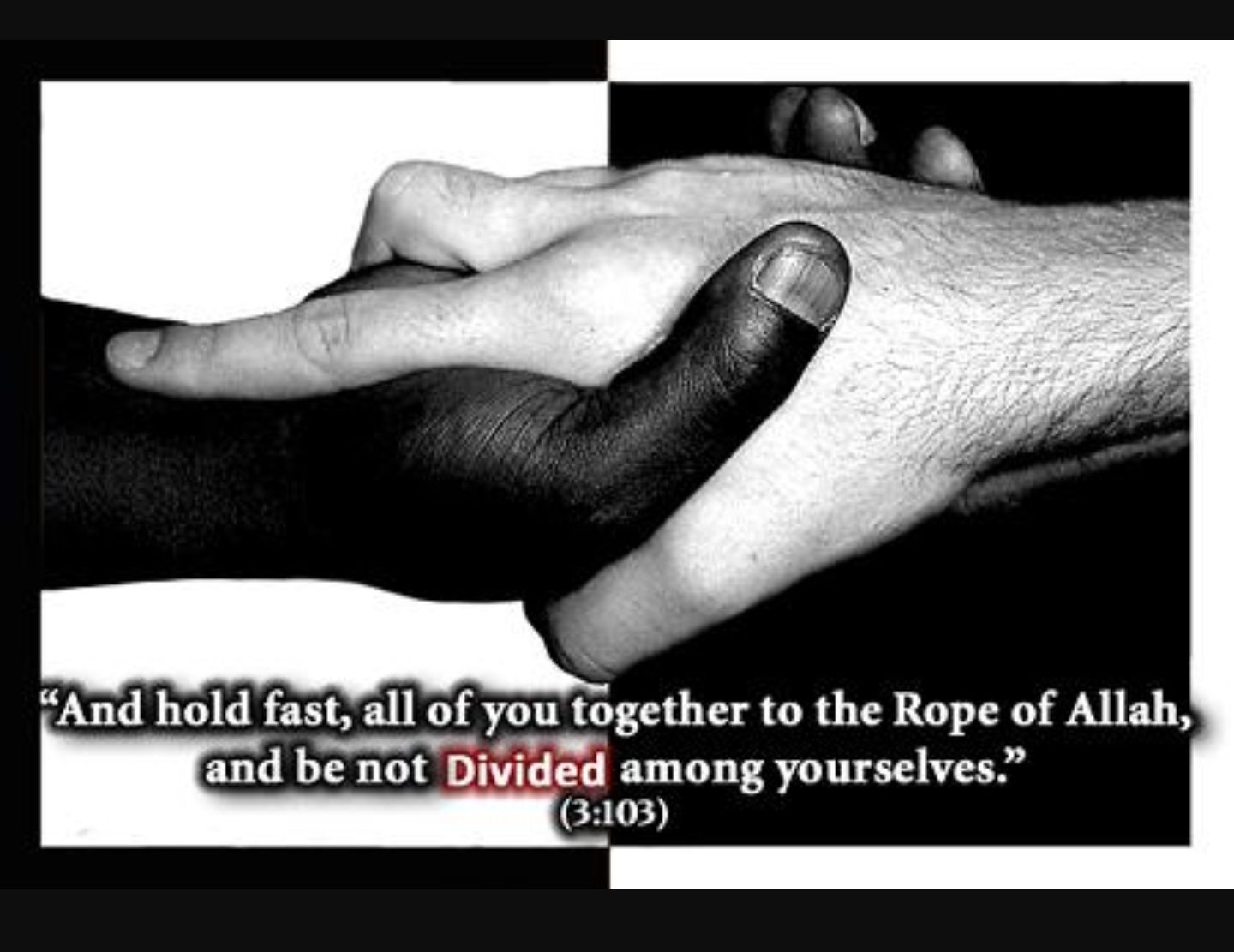Sunni + Shi'a
Bismillah hir rahmanir raheem
Assalamualaikum my wonderful brothers and sisters! How are you all? Hope you're doing well inshallah! Allhamduillah my week went great! How about urs? Jummah Mubarak!
Today I am talking about the Sunni and Shi'a split in Islam.
First let's explain the two and their background.
There are said to be two different types of Muslims : Sunni and Shi'a. We believe this happened as people fought when Muhammad SAW (the last prophet) died. Everyone believed we had to follow Muhammad but they believed different things about him. So everyone said
our next person to tell everyone what Muhammad SAW said) should be Abu Bakr - Muhammad SAW best and closest friend. However some thought it should have been his cousin's son in law Ali. Everyone fought to decide and at the end they split up. Followers for Abu Bakr were known as Sunni. And Shi'a Muslims were Ali's followers. They both have different beliefs but also similar beliefs. No matter whether you are a Sunni or a Shi'a, you must belief in the three most important beliefs:
1) The Oneness of Allah SWT
2) The belief in Prophet Muhammad SAW and that he was the last prophet
3) The belief in Life After Death
Prayer Differences (Source: http://www.differencebetween.net/miscellaneous/difference-between-shia-and-sunni-namaz/)
Sunni and Shia Namaz or salat differ from each other on the basis of actions and words involved. Sunni Muslims follow various interpretations by different schools of laws whereas Shia Muslims follow different legal traditions. Sunni Muslims follow Hanbli, Hanfi, Malikii and Shafi schools of thought whereas Shia Muslims follow Jaafri Madhhab.
Shia Muslims pray three times a day as they join two salats such as Maghrib and Isha salat together whereas Sunni Muslims pray five times a day. The two salats combined by Shia Mulsims are called the Maghrebain. Shia Muslims use a plank of wood or a hard tablet made of clay from karbala to rest their heads during prostration whereas Sunni Muslims touch their heads directly to the floor.
The other differences between Shia and Sunni salat include the position of their hands. Sunni Muslims fold their arms whereas Shia Muslims do not find it valid to fold arms during salat. There are also differences in the Athan or prayer call such as Sunni Muslims add 'AL-SALATU KHAYRUN MINA NAWM' in the Fajar Athan whereas Shia Muslims add 'HAYYA ALA KHAYR AL-'AMAL.' It is a must or Wajib for Shia to say 'Khayr al amaal' whereas Sunni Muslims do not consider it a must since it was stopped at the order of caliph Omar. Shia and Sunni Muslims both regard Athan as a Sunah, near Wajib or it is a must.
'Nawm' is a must for Sunni Athan but Shia Muslims do not say it because it was not said at the time of Prophet Muhammad and Omar. The caliph introduced it during his times. Some of the other differences between Shia and Sunni namaz are the use of word Amen. Amen is a Hebrew word and Shia scholars do not consider it Wajib whereas Sunni Muslims say amen after Surah Fatiha during namaz. Amen is a compulsory word to say after Surah Fatiha for Sunni Muslims. Shia Muslims read complete Surah or verses of Quran after Surah Fatiha whereas Sunni Muslims are not bound to read the whole Surah. They may read only a few verses or just one verse from any where in the Quran after Surah Fatiha.
There are also many other minor differences between the Shia and Sunni namaz as mentioned above. Sunni Muslims point their fingers or rotate these in circles during namaz whereas Shia Muslims do not and then Shia sit comfortably on the folded feet whereas Sunni sit on twisted foot and so on.
Summary:
1. Shia Muslims pray three times a day and combine Maghrib and Isha salat whereas Sunni Muslims pray five times a day.
2. Sunni Muslims fold their arms whereas Shia Muslims do not fold their arms during namaz.
3. Shia Muslims add 'Khayr al amaal' whereas Sunni Muslims add 'Nawm.'
4. Sunni Muslims touch their heads to the ground whereas Shia Muslims use a wooden block or tablet of clay to rest their heads during prostration.
5. Shia Muslim scholars prohibit the use of word Amen during the namaz whereas Sunni Muslims consider it as a must.
Important Facts
How do their beliefs differ?
The Sunni and Shiite sects of Islam encompass a wide spectrum of doctrine, opinion and schools of thought. The branches are in agreement on many aspects of Islam, but there are considerable disagreements within each. Both branches include worshipers who run the gamut from secular to fundamentalist. Shiites consider Ali and the leaders who came after him as imams. Most believe in a line of 12 imams, the last of whom, a boy, is believed to have vanished in the ninth century in Iraq after his father was murdered. Shiites known as Twelvers anticipate his return as the Mahdi, or Messiah. Because of the different paths the two sects took, Sunnis emphasize God's power in the material world, sometimes including the public and political realm, while Shiites value in martyrdom and sacrifice.
Which sect is larger, and where is each concentrated?
More than 85 percent of the world's 1.5 billion Muslims are Sunni. They live across the Arab world, as well as in countries like Turkey, Pakistan, India, Bangladesh, Malaysia and Indonesia. Iran, Iraq and Bahrain are largely Shiite. The Saudi royal family, which practices an austere and conservative strand of Sunni Islam known as Wahhabism, controls Islam's holiest shrines, Mecca and Medina. Karbala, Kufa and Najaf in Iraq are revered shrines for the Shiites.
Saudi Arabia and Iran, the dominant Sunni and Shiite powers in the Middle East, often take opposing sides in regional conflicts. In Yemen, Shiite rebels from the north, the Houthis, overthrew a Sunni-dominated government, leading to an invasion by a Saudi-led coalition. In Syria, which has a Sunni majority, the Alawite Shiite sect of President Bashar al-Assad, which has long dominated the government, clings to power amid a bloody civil war. And in Iraq, bitter resentments between the Shiite-led government and Sunni communities have contributed to victories by the Islamic State.
My perspective
I personally believe I am not a Sunni or a Shi'a as I believe it is wrong. I belive that Muhammad refers to us as "people" or "Muslims" and not "Sunnis" or "Shi'as". We are all Muslims at the end of the day and we are our body one Ummah. So why are we trying to separate ourselves? This is wrong! Islam explains unity! Not division! So stop this nonsense.
What are you? Let me know down below in the comment section!

As we see from the above image, Muhammad SAW refers to us as believers and not "Sunni's" or "Shi'as".



Bạn đang đọc truyện trên: AzTruyen.Top